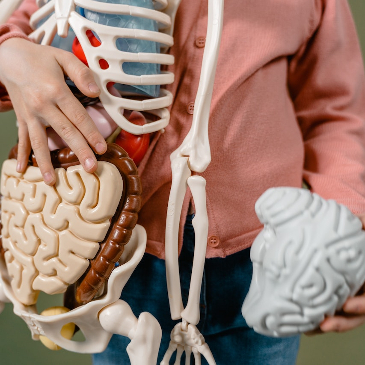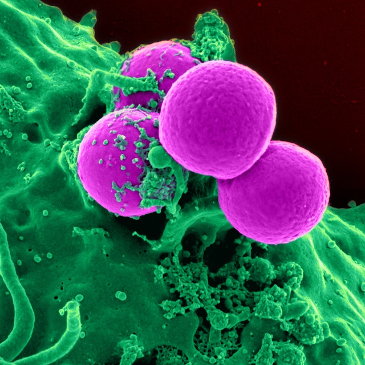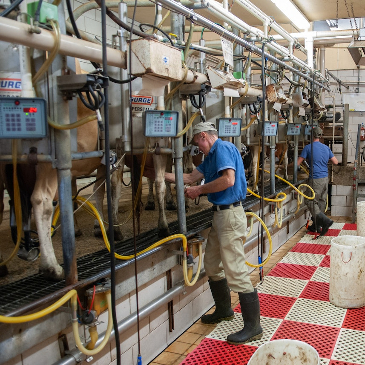“Go with your gut feeling” is a phrase which most of us know well but few of us realise how literally it can be taken. The stomach is often called the ‘second brain’ and when the gut microbiome is out of whack it can have profound consequences. A probiotic like this one from
How Long Does It Take To Get Good Bacteria Back In Your Gut?
It takes 3-6 months to fully restore your good gut bacteria back to healthy levels after a course of antibiotics or a significant dietary change. The food you eat, levels of exercise and a good probiotic supplement are all helpful tools in the journey back to a healthy gut.
Watch: Dr Eric Berg breaks down the bacteria question very simply:
( Dr Berg delivers the message in his characteristic, no nonsense way )
The Gut Microbiome Is Supremely Complex
There are trillions of microbes in the human gastrointestinal (GI) tract.

In a healthy person these bacteria exist symbiotically with the human body, working away constantly to help digest our food, develop the immune system and synthesise vitamins like riboflavin, folate and vitamin K.
The bad bacteria in your gut can be tolerated at low levels and the good bacteria need to be present in sufficient quantity in order to counteract and keep the system in balance.
When there is too much bad bacteria swilling around down there symptoms like diarrhoea, bloating and general abdominal pain can result.
Is Your “Second Brain” Trying To Tell You Something?
There are over 100 million neurons lining the walls of your gut.
 While this figure is dwarfed by the 86 billion neurons in the brain, the neural capacity of the GI tract is not to be taken lightly.
While this figure is dwarfed by the 86 billion neurons in the brain, the neural capacity of the GI tract is not to be taken lightly.
Researchers have discovered this neural network in the gut is directly connected to the brain and there is constant two-way communication going on via the vagus nerve.
The presence of so many neurons in the gut and the function they perform has led scientists to nickname it the “second brain”. While your gut cannot philosophise on the vagaries of life, it is instrumental in many physiological processes and can even determine your mood.
So when you have a “gut feeling” about something this is literally what is happening. Do you get butterflies in the stomach when you’re nervous? That’s your gut signalling to your brain in real-time via the enteric nervous system, as it is also known.
Antibiotics: The Enemy Of Your Digestive System
There are many reasons your gut microbiome may be out of balance. Stress, diet and lack of exercise are just a few. But a major cause is antibiotics.
 Doctors dish them out like sweeties. The vet prescribes them for our pets. So much so that we are developing resistance to antibiotics.
Doctors dish them out like sweeties. The vet prescribes them for our pets. So much so that we are developing resistance to antibiotics.
Many scientists now believe antimicrobial resistant ‘superbugs’ will be the next big global health threat. The problem is, once a microbe develops resistance to an antibiotic it will spread like wildfire.
Not only do we have that very real threat to attend to but taking prescribed antibiotics is a crude, scattergun approach. It is completely indiscriminate and kills the bad bacteria as well as the good ones which are so vital.
As a result it’s very common to experience GI related problems when you take antibiotics. To fix it you need to rebalance that gut flora with good bacteria.
… and this is where a probiotic supplement can help greatly.
A high quality probiotic supplement will contain upwards of 25 billion CFU (colony forming units). This is the active constituent of the product and is what will replenish your gut with the good bacteria it needs to function properly.
Antibiotics Are Integral To Factory Farming Systems
If intensive farmers didn’t treat their livestock with antibiotics, disease would be rife. They also nourish their animals with antibiotic-laden foods. Although there is some debate as to whether the latter poses a significant risk to human health.
 That last linked source is a ten year old article and since publication the world has hurtled towards ever more antibiotic use as standard practice. What I learned from researching this piece is that routine antibiotic use has been instrumental in the industrialisation of farming.
That last linked source is a ten year old article and since publication the world has hurtled towards ever more antibiotic use as standard practice. What I learned from researching this piece is that routine antibiotic use has been instrumental in the industrialisation of farming.
In fact it would be impossible to farm animals in such an intensive way as we do today without the institutionalised use of antibiotics. It’s just a given.
Quitting the use of agricultural antibiotics would result in a huge shortfall of meat and dairy supply. With demand only increasing it seems antibiotics for animals are here to stay.
While the antibiotic strains used in animal agriculture are generally not the same as those we use in human populations, antimicrobial resistance is increasing all the time; in animals and humans.
There does seem to be some crossover too. “Resistance genes don’t discriminate” says professor Tara C. Smith, Ph.D. … as bacteria become resistant to a particular antibiotic they can pass to humans and convey some of that resistance against other, medically important antibiotics.
Probiotics Are Your Best Friends
Forget Facebook … wouldn’t you like to have 25 billion best friends?
A high quality probiotic supplement will provide you with over 25 billion colony forming units (CFUs) in every capsule. That’s 25 billion chances to get your friendly gut bacteria growing again.

It’s well worth going with a trusted brand like
Probiotics are very sensitive to the manufacturing process and need to be handled with great care. It’s why we recommend
So if you need to replace that good bacteria which you’ve lost through a course of antibiotics or any other reason then try a couple of months of a good quality probiotic supplement. Many people report a huge improvement in their gut health.
Personally, I only supplement once a month or so because my 100% plant based diet is pretty good at keeping everything working properly down there. Even so, I can definitely feel the effects of the probiotics when I take them 🙂
I hope this article has helped you to answer your questions today. If not, please let us know in the comments below and share this with your friends if you think they might benefit.
Would you like us to let you know when we publish new content? Sign up to our ‘latest post alerts’ email list and consider it done.
Thanks for reading and have a peaceful day.
Rohan.
